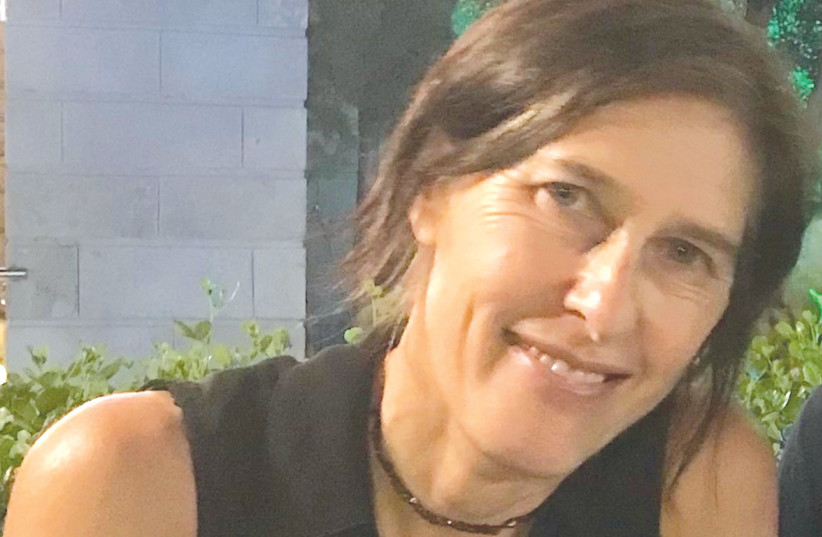At the recent Tel Aviv Cinemateque premiere of The Narrow Bridge, a documentary featuring Israelis and Palestinians who have lost family members to the conflict, a blend of Hebrew and Arabic filled the air.
Focusing on four Israelis and Palestinians who build a grassroots movement and transform their grief into a bridge for peace, the film highlights the notion that the dialogue and mutual understanding the subjects of the film strive to prove is possible.
Rami, Bushra, Meytal and Bassam each have a harrowing story to tell about loved ones lost to violence.
Rami: In 1997, Rami Elhanan’s daughter, Smadar, was killed by a Palestinian terrorist in a suicide bombing attack on Ben Yehuda street, in Jerusalem.
Bushra: Bushra Awad’s son, Mahmoud, was killed by Israeli soldiers in Beit Ummar, in 2008, during a demonstration after the military entered the village.

Meytal: Meytal Ofer’s father, Yaya, was axed to death right outside his home by two young Palestinian men, in 2013. They struck him with the weapon 41 times.
Bassam: Bassam Aramin’s daughter, Abir, was shot and killed, in 2007, by an Israeli border policeman in front of her school.
I hope the film can break down the stereotypes that we might have about each other, to keep some hope alive and to see there is a partner on the other side,”
The films director Esther Takac
What does the film talk about?
The film describes how the four, rather than being driven into permanent bitterness, despair and hatred, have each turned to peace and reconciliation.
According to the film’s director Esther Takac, The Narrow Bridge hopes to break down the stereotypes Israelis and Palestinians share about each other.
“I think the work these people are doing is an important and powerful story for Israelis and Palestinians to be able to see the story and the pain of the other side. I hope the film can break down the stereotypes that we might have about each other, to keep some hope alive and to see there is a partner on the other side,” she said.
“But I think the story is also relevant beyond Israel and the Palestinian territories. As I was following Rami, Bushra, Meytal and Bassam, and the Israeli Palestinian Bereaved Families organization they belong to, I realized that these people could be a model for others dealing with trauma and conflict across the world. In the work they’re doing they could be a model for all of us to become the best versions of ourselves, as we deal with the pain and conflict in our lives.”
IN ORDER to do that Takac says she was careful to emphasize balance in presenting the contrasting perspectives.
“What [Rami, Bushra, Meytal, and Bassam are] doing is also a model for them dealing with their own trauma. It creates a pathway out of that trauma to what is called ‘post-traumatic growth,’” explains Takac, who, in addition to being the director of the film, is also a trauma psychologist. Undergoing this kind of growth is an “opportunity to have your own pain witnessed and to find a community of other people and to have that pain be given some meaning.”
“Part of my journey was trying to understand how they did that,” Takac says. And although she doesn’t offer a definitive answer, she suggests there are likely various factors. “I think one of the factors was that each of them met the human face of the other in their journey.”
“Many Palestinians meet only the military, occupier face of Israel, seen through the soldiers and checkpoints... On the other side many Israelis engage only with the frightening face of Palestinians as people who seem uncompromising, violent, willing to send their children to die and kill others,” Takac writes. This is a perspective that can only lead to hatred and mistrust.
But the film tries to show that when people on opposite sides are able to see each other for their common humanity, open themselves up to see the pain of the other and let their own pain be seen, the opposite result is possible.
The documentary strives to show how grassroots peace-building projects, such as Israeli Palestinian Bereaved Families, have a real impact. It argues that these efforts do, from the ground up, change what Takac calls, “the culture of conflict.”
Whether this message will prove to be true is unsettled but the documentary is clear that there are many similarities, both good and bad, between Jews and Arabs.
In the film, Bassam makes an observation about these similarities.
“We had one year of meetings (in the coexistence group Combatants for Peace) when we discovered that we are the same. It’s a copy, it’s a mirror. We have radical disagreements about everything and we are very similar. We want to kill each other to achieve peace and security,” he said.
The Narrow Bridge advocates for the idea that in order to have any hope of eventual peace, both sides must be able to see both the pain and the humanity of the other.
In a region that often seems defined by conflict, it’s a controversial position. However, many have already been moved by the message of the documentary. Bestselling author Colum McCann called it “compelling, profound and graceful.” Additionally, interviewer, moderator and presenter Michaela Kalowski praised it as “powerful, nuanced and unforgettable” and Neil Friedman, co-founder of ChaiFlicks streaming described it as “an incredible film – poetry in the subject matter, poetry in the filmmaking.”
The film is starting to make its way into the world. After winning the Audience Award for Best Documentary at both the 42nd San Francisco Jewish Film Festival and the Jewish International Film Festival, it is screening at Solidarity, and then at the New York and Miami Jewish Film Festivals, in January.
